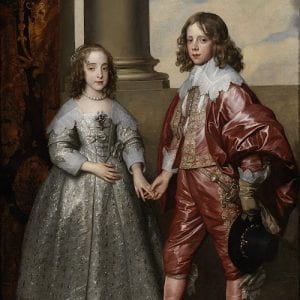Month: October 2023
MONDAY, November 6th, Elizabeth Hines, “Anglo-Dutch Imperial Experiments”

MONDAY, October 23rd, Jenny Birkett, “Shakespeare’s Possessive Pet Names”

Please join the Renaissance Workshop
Monday, October 23rd, when
Jenny Birkett
Postdoctoral Fellow with Shakespeare, University of Notre Dame
presents the paper
“Shakespeare’s Possessive Pet Names”
MONDAY, October 23rd
5:00-6:30pm
Rosenwald 301
*please note the different room*
The paper, to be read in advance, has been distributed to the Renaissance Workshop mailing list and is available on our website under the password “endearment.” Light refreshments will be served.
Abstract:
In this paper, I contest the claim that Shakespeare’s most used form of endearment is animal terminology (such as duck), by highlighting that the most common affectionate vocative construction in Shakespeare’s plays is actually the combination of a genitive possessive (such as my, thy, your, our) with either a proper name (such as “my Hermia”), a title (such as “my lord”), or an endearing term (such as “my love”, or “my sweet”). Using A Midsummer Night’s Dream as a case study, I analyze the ways in which possessive endearments enact early modern marriage by portraying a relationship tangled in issues of dominance, submission, and mutual affection. This paper acts as the first of five chapters in my current book project on terms of endearment in early modern drama.
If you would like to join our mailing list, please click here. We are committed to making our workshop accessible to all persons. Questions, requests, and concerns should be directed to Andrés Irigoyen (airigoyen@uchicago.edu) or Alyssa Mulé (amule@uchicago.edu).
Protected: Materials for Birkett Workshop
Protected: Materials for Strier Workshop
MONDAY, Oct. 9th, Richard Strier, “Bangs and Whimpers: Notes on The Early Versions of King Lear”

Please join the Renaissance Workshop
MONDAY, October 9th, when
Richard Strier
Frank L. Sulzberger Distinguished Service Professor Emeritus at the University of Chicago
presents the paper:
“Bangs and Whimpers: Notes on The Early Versions of King Lear”
MONDAY, October 9th
5:00-6:30pm
Rosenwald 301 (note the different room)
The paper, to be read in advance, has been distributed to the Renaissance Workshop mailing list and is available on our website here under the password “twofer.” Light refreshments will be served.
If you would like to join our mailing list, please click here. We are committed to making our workshop accessible to all persons. Questions, requests, and concerns should be directed to Andrés Irigoyen (airigoyen@uchicago.edu) or Alyssa Mule (amule@uchicago.edu).
